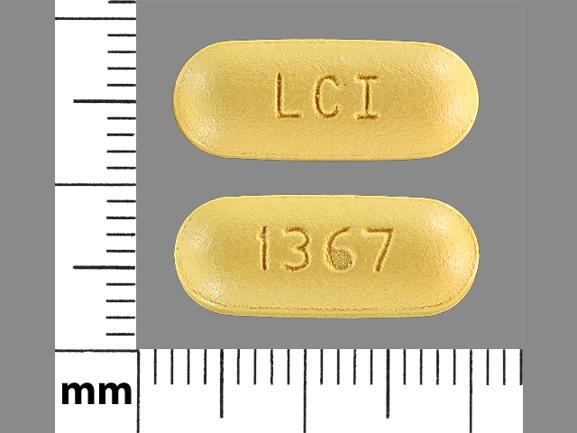Probenecid Disease Interactions
There are 5 disease interactions with probenecid.
Probenecid (applies to probenecid) blood dyscrasias
Major Potential Hazard, Moderate plausibility. Applicable conditions: Anemia, Bone Marrow Depression/Low Blood Counts
The manufacturer does not recommend the use of probenecid in patients with known blood dyscrasias. Aplastic anemia, leukopenia, hemolytic anemia and other anemia have been reported infrequently during administration of probenecid. Glucose-6-phosphate dehydrogenase (G-6-PD) deficiency may increase the risk of probenecid-induced hemolytic anemia.
References
- Sosler SD, Behzad O, Garratty G, et al. "Immune hemolytic anemia associated with probenecid." Am J Clin Pathol 84 (1985): 391-4
- Kickler TS, Buck S, Ness P, et al. "Probenecid induced immune hemolytic anemia." J Rheumatol 13 (1986): 208-9
- Gutman AB "Uricosuric drugs with special reference to probenecid and sulfinpyrazone." Adv Pharmacol 4 (1966): 91-142
- "Product Information. Benemid (probenecid)." Merck & Co., Inc PROD (2001):
Probenecid (applies to probenecid) dehydration
Major Potential Hazard, High plausibility. Applicable conditions: Diarrhea, Vomiting
Probenecid may promote lithiasis by increasing uric acid concentration in the renal tubules. Adequate hydration is necessary during therapy. Patients who are dehydrated (e.g., due to severe diarrhea or vomiting) may be at increased risk for the development of uric acid kidney stones and should be encouraged to consume additional amounts of liquid or given intravenous fluid. In general, fluid intake sufficient to yield a daily urinary output of at least 2 liters is recommended. Maintenance of a slightly alkaline or neutral urine is also desirable.
References
- Gutman AB "Uricosuric drugs with special reference to probenecid and sulfinpyrazone." Adv Pharmacol 4 (1966): 91-142
- "Product Information. Benemid (probenecid)." Merck & Co., Inc PROD (2001):
Probenecid (applies to probenecid) uric acid nephrolithiasis
Major Potential Hazard, High plausibility. Applicable conditions: History - Nephrolithiasis, Gouty Nephropathy
The use of probenecid is not recommended in patients with a history of uric acid nephrolithiasis or a urinary urate excretion greater than 750 mg/24 hr. Probenecid may promote lithiasis by increasing uric acid concentration in the renal tubules. Adequate hydration is necessary during treatment. In general, a fluid intake sufficient to yield a daily urinary output of at least 2 liters is recommended. Maintenance of a slightly alkaline urine is also desirable.
References
- Gutman AB "Uricosuric drugs with special reference to probenecid and sulfinpyrazone." Adv Pharmacol 4 (1966): 91-142
- "Product Information. Benemid (probenecid)." Merck & Co., Inc PROD (2001):
Probenecid (applies to probenecid) PUD
Moderate Potential Hazard, Low plausibility. Applicable conditions: Peptic Ulcer, History - Peptic Ulcer
The manufacturer states that probenecid should be used with caution in patients with a history of peptic ulcer. Uricosuric agents can cause upper gastrointestinal irritation and aggravate or reactivate peptic ulcer. However, these effects have primarily been reported with another uricosuric agent, sulfinpyrazone. GI effects associated with probenecid are usually limited to nausea, vomiting, and anorexia.
References
- "Product Information. Benemid (probenecid)." Merck & Co., Inc PROD (2001):
Probenecid (applies to probenecid) renal dysfunction
Moderate Potential Hazard, High plausibility.
Probenecid may not be effective in patients with chronic renal insufficiency, particularly when glomerular filtration rate is 30 mL/min or less. Probenecid has been used in patients with some renal impairment but dosage requirements may be increased.
References
- Scott JT, O'Brien PK "Probenecid, nephrotic syndrome, and renal failure." Ann Rheum Dis 27 (1968): 249-52
- "Product Information. Benemid (probenecid)." Merck & Co., Inc PROD (2001):
Probenecid drug interactions
There are 173 drug interactions with probenecid.
More about probenecid
- probenecid consumer information
- Check interactions
- Compare alternatives
- Pricing & coupons
- Reviews (6)
- Drug images
- Side effects
- Dosage information
- During pregnancy
- Drug class: antigout agents
- Breastfeeding
- En español
Related treatment guides
Drug Interaction Classification
| Highly clinically significant. Avoid combinations; the risk of the interaction outweighs the benefit. | |
| Moderately clinically significant. Usually avoid combinations; use it only under special circumstances. | |
| Minimally clinically significant. Minimize risk; assess risk and consider an alternative drug, take steps to circumvent the interaction risk and/or institute a monitoring plan. | |
| No interaction information available. |
Further information
Always consult your healthcare provider to ensure the information displayed on this page applies to your personal circumstances.


